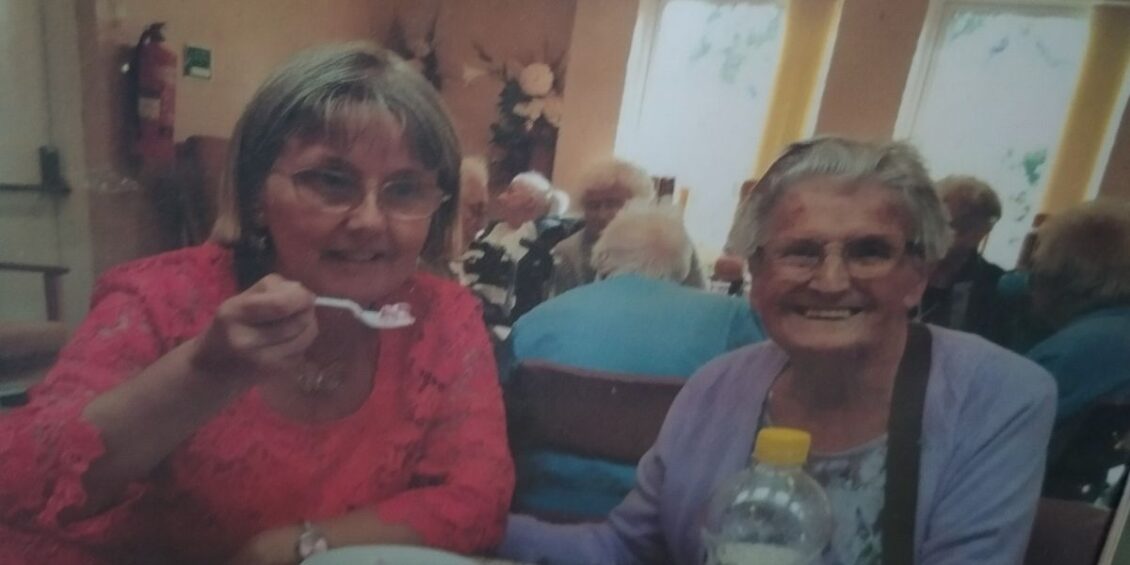- Marie Curie calls for strengthening of community support so more people can die in comfort at home
- One in nine (11%) people who died in hospital had been there less than 24 hours showing that too many people who are close to death end up in a busy A&E, because there isn’t access to proper care at home or in a care home
- Almost half of people (46%) who died in hospital had no friends or family members present
- A quarter (25%) of people who died either probably or definitely did not know they might die because of their illness
- Marie Curie is calling on the Welsh Government to develop a plan for their Quality Statement on palliative and end of life care
Concerning research funded by Marie Curie reveals that too many people in Wales are unaware that they are dying, are experiencing avoidable pain and dying alone.
The charity has released research1 showing that many are dying without the care and support they and their families need. Family carers for those at the end of life, -reported having to undertake essential care without the correct knowledge, skills, or access to professional support.
The research is based on the largest ever post-bereavement survey in Wales. It found that many people are dying frightened, sometimes alone and with avoidable pain and symptoms. Stressed and exhausted families often feel neglected and don’t know where to turn to for help and are left with ‘disturbed grief’.
By documenting the lived experiences of those at the end of life and their loved ones, the report reveals that the Welsh Government’s vision for palliative and end of life care – the Quality Statement – is a frustratingly long way from being realised.
This research, funded by Marie Curie as part of the Better End of Life programme is a collaboration between Marie Curie, King’s College London Cicely Saunders Institute, Hull York Medical School at the University of Hull, and the University of Cambridge.
Key findings of the research include:
Too many people die in pain and without the support they need for their symptoms
- More than one in three people were severely or overwhelmingly affected by pain (36%) or breathlessness (40%) in their final week of life, and many felt anxious and depressed.
- Difficulties accessing medicines were common, particularly ‘out of hours’.
Patients and families suffer when services are poorly coordinated, and professionals lack time
- Almost half (47%) were unhappy with at least one aspect of the care their family member received. One in 15 made a formal complaint.
- Staff across health and social care settings often did not have enough time to provide adequate care for dying people.
Unpaid carers take on significant caregiving roles with little support
- Most respondents undertook essential caregiving roles, but many felt they lacked the knowledge, skills, and access to professional support needed.
- Of respondents still in work, 14% took between 31 and 90 days paid or unpaid leave, while 6% quit or changed their jobs (including retiring early), to care for their loved one.
Ann Hutchings, 69, from Penarth, whose mum had dementia and died without family in hospital in May 2020 after contracting Covid, said:
“It got to the stage where I could neither physically or mentally cope with it. I didn’t want her to go into hospital, because I knew if she went in, it was highly likely she wouldn’t come out.
“But I let her go – for the first time ever, she went into the ambulance alone as well, because I always went with her and visited her every day.”
Moved from Llandough Hospital to Barry Hospital for rehabilitation, her mum – Sylvia – deteriorated further, and doctors reluctantly allowed Ann to visit her two days before she died.
“They moved her into a side ward and it was Linda from Live at Home who took me down – I sat in the back masked up and she sat in the front masked up as we were in total lockdown then,” Ann added.
“I went to the ward, I had to gown up. I spent nearly an hour with her, she was still semi-conscious and I like to think she knew I was there.
“On May 1 2020, about 4pm the doctor came on the phone and said it’s not going to be long and I thanked them for letting me know.
“Around 10pm all my electricity went off – but nobody else in the street was affected. I said “mum is that you saying goodbye” and then it came back on and the phone rang – it was the nurse from the hospital telling me she had passed. She reassured me that she hadn’t been on her own at the time.”
Ann has since received support from the Marie Curie Support Line’s bereavement and companion over the phone services – something she says is invaluable and helped her through her grief and in moving ahead with her life.
Marie Curie Cymru Associate Director of Policy and Public Affairs, Jon Antoniazzi, said:
“Hearing how people are still struggling in their final weeks is so sad and distressing. The repercussions from poor end of life care has a profound impact on the person whose dying as well as their loved ones.
“Frustratingly, despite its importance, end of life care continues to be overlooked and now the shortfall in support is at a critical level.
“Despite the Welsh Government having welcome ambitions to improve palliative and end of life care, we really need to see these ambitions turned into a sound plan and solid actions.
“That’s why we’re calling on the Welsh Government to develop, at pace, a plan to support and deliver its already published end of life care aspirations across Wales.”
“We desperately need the Welsh Government and Health Boards to play their role in fixing the end of life care crisis and improve support for families and carers of people with a terminal illness, otherwise even more people will have a bad death, carers will suffer, and vital NHS resource will be put under more strain.”
Professor Katherine Sleeman, from King’s College London and lead researcher on the Better End of Life programme said:
“The research has shown that while some people, especially those accessing specialist palliative care, reported positive experiences of high-quality care, many described the difficulties of accessing overstretched, poorly coordinated services that lacked the time to provide the care and support that was needed.
“Many people are dying at home with breathlessness, pain and mental health needs and their unpaid carers felt unprepared and unsupported. Providing and coordinating care took considerable time with significant financial and emotional consequences.
“If more end of life care is to be provided in the community, funding and commissioning must respond to this pattern of demand. As dying, death and bereavement affect us all, it is in everyone’s interest to get this right.”








Leave a Reply
View Comments